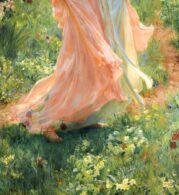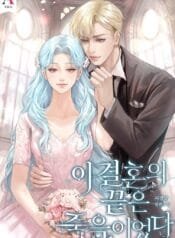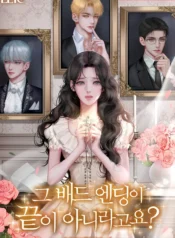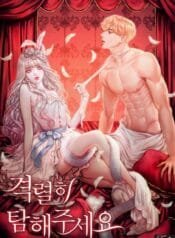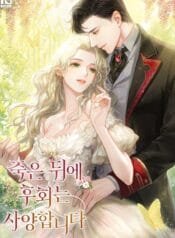Until a student cleaning the library discovered that very short writing that even its author had forgotten.
Originally, universities were said to be created to raise shepherds who guide the sheep-like ignorant masses, that is, clergy. However, at Camargue University, unknown stirrings began to seethe instead of God’s sacred words. Red madness began to spread riding on the students’ young blood.
The short essay circulating to avoid the eyes of faculty and city hall, and its copies, and copies of copies. Papers that multiplied like offspring poured oil on the fire. The signature of the great noble Levizet written at the end of the original justified that sedition.
Even the great noble Levizet denies the unjust class system. So isn’t it justified for us to overthrow it?
Soon riots broke out throughout the empire.
Those who defined themselves as ‘Levizétiens’ caused violent riots under the pretext of carrying on the will of Philippe Levizet, who had already left the world.
The riots that initially developed by simply dragging down nearby lords soon led to merciless plunder. It was a natural result since all sorts of riffraff flocked hoping to seize a position taking advantage of the chaos, but there was no strong central system to control them.
The movement called by the grandiose and long name ‘Sacred Revolution Claiming the Natural Rights God Granted to All Humans’ soon became banditry plundering easy targets.
Since the nobles they originally targeted were gathered in the palace with doors tightly locked, those who justified that they had no choice but to demand ‘sacred revolution’ sacrifices from nearby ignorant commoners to preserve their forces for now were soon swept away by the military dispatched by the angry ruler of that time, the former emperor.
Once the riots were settled for the time being, the former emperor began turning his arrows toward the source. Hearing that it started with the ‘Levizétiens,’ the former emperor was enraged at what amounted to being betrayed by Levizet, who had been a faithful subject.
Neither the fact that none of the family members remaining in House Levizet at the time had seen even the tip of Philippe Levizet’s hair, nor the fact that even Levizet territory’s abundant vineyards had been plundered due to the riots, was sufficient to change the former emperor’s mind.
The former emperor’s will, believing the current disgraceful behavior was like being stabbed in the back by a faithful subject, was stubborn as a rock mountain. Careful petitions were useless. The former emperor even refused to receive greetings from his eldest daughter-in-law Armengarde, who was crown princess at the time, whom he had cherished somewhat, on the grounds that she had once had Marchioness Levizet as head maid, and locked the door to Diamond Hall.
Levizet was already in a difficult situation since the marquis who was the family head had died of illness the previous year. The only legitimate heir was a six-year-old snot-nosed child, and what remained in the family was the marchioness who had given birth barely over a year ago, and one young child lying in a cradle. With the emperor’s anger fierce in the midst of this, ominous rumors spread that the historic Levizet, which had continued since the days of Levisa County, would now be exterminated.
That night the wind was cold.
A woman in white appeared in the darkness where one couldn’t see an inch ahead. Like a banshee that doesn’t cry (a fairy that foretells death with wailing), the lady who appeared suddenly knelt in front of the entrance to Prudence Palace where the supreme emperor’s quarters were located. Those passing through the palace one by one soon recognized that she was the rumored ‘Marchioness Levizet.’
However, what they noticed was an appearance completely unimaginable from her usual self, who had been called the model of noble ladies.
Her hair, which she had always worn pinned up nobly befitting a noble lady, was loose and disheveled. The jeweled shoes she usually wore were nowhere to be seen—she was barefoot.
High and heavy heels signify that the wearer is of a status and authority that doesn’t need to run around personally. This situation of removing shoes and revealing white bare feet meant that the lofty Marchioness Levizet had completely laid down her power and safety.
Hundreds of years ago, a king facing the crisis of excommunication was said to have begged barefoot in bitter cold for several days and received the Pope’s forgiveness. However, the appearance of this woman kneeling now was rather lofty and elegant rather than humiliating like that legendary king in oral tradition.
Even while people murmured and watched, she didn’t move a muscle. As the moon rose higher and higher, the clothes she wore shone white in that light.
Compared to the splendid silk clothes and jeweled accessories Marchioness had worn while traversing the court, it was simple clothes that could be felt as insulting. White clothes without abundant draping or embroidery or tatting lace at the edges.
At a glance, it might have reminded one of a chemise, considered a woman’s most intimate clothing, but the buttons fastened up to the chin left no room for any impure thoughts. In some ways, it also resembled the habits of nuns who had devoted themselves to faith.
However, its meaning was quite political.
Those quick to catch on soon realized that the white clothes meant Levizet’s innocence, pure as a dove, and the clothes without even the simplest accessories meant she harbored no murderous intent toward the emperor. It was innocence appealing with her whole body as a last resort to the emperor who blocked his ears and dismissed even protests.
The demonstration with her whole body didn’t stop until the moon set, the sun rose, that sun again painted the sky red, and a new moon rose again. The posture of kneeling upright without drinking a single sip of water showed not a speck of disorder.
Some called this vicious, while others praised her unshakeable dignity. One painter who frequented the court even set up a spot and began sketching preliminary drawings.
Through all this commotion, Marchioness remained motionless, only gazing at the window on the 4th floor of the palace where Diamond Hall, where the most supreme one would be, was located.
Then, by God’s grace, the tightly closed door of Diamond Hall opened.
***
The story that filled the Ivory Hall stopped. It was time enough for the prepared refreshments to grow cold, but she hadn’t noticed. Mélisande’s eyes held slight moisture.
“So that’s how you protected the family.”
The woman who had won the support of the entire court and changed the emperor’s heart with a single n*ked appeal elegantly picked up an embroidered napkin and wiped her lips.
“Yes. That painting was born from the sketch drawn by Sir Hubert, the court painter of that time who saw that scene.”
Mother’s gaze rested on the painting of Saint Jeanne. A faint sneer crossed her lips.
“Isn’t it ridiculous? To think of painting a picture of a saint who saved the empire based on a traitor. Normally it would have been something to laugh at and pass by. However, I had to do whatever I could.
To shake off the label of traitor attached to the family, and so that tainted pride wouldn’t be passed down to my son and daughter. So that those dwelling under Levizet’s name could survive.”
Mother let out a light sigh and continued.
“I lowered my body and bowed my head. I agreed to the policy of imposing enormous central taxes on Levizet wine and wool for 5 years. I even played along with such things as……”
Mother gestured toward Saint Jeanne’s painting.
“Clown shows. Why is that? Because in this court, honor itself becomes a shield and weapon that protects you and your people.”
Her mouth closed in exactly the same shape as that of Saint Jeanne in the painting. Unlike the woman in the painting frozen in a moment, the real thing seemed to have the sculptor called lived years carve cunning and stubbornness even deeper.
“Those born noble have obligations (noblesse oblige).”
Mother turned her head toward where we sat and spoke precisely.
“How can one think that those with blue blood who rule hold only power in their hands? The lives of those who are governed rest on their shoulders. Isn’t the responsibility heavy? You must remember that this is both your foundation and your shackles.”
She took a deep breath in the atmosphere that had grown heavy like sinking into the deep sea. Mother silently rose and flowed like water toward where Mélisande and she sat. Mother placed an ebony jewelry box in front of Mélisande. Though she had certainly set it down lightly, the dull sound the box made meeting the marble table suggested its weight was considerable.
“Therefore, you must become the wisest, most beautiful, most dignified, and most honorable person in this court. Use everything you can use to protect those under your care.”
Mélisande’s trembling hand hesitated over the jewelry box. Mother nodded her chin slightly as if telling her to open it.
Inside the box were thick pearls emitting five-colored radiance.
Even she inhaled sharply knowing how precious perfectly spherical pearls were in this world without cultured pearls. The cloudy pink color was definitely a variety produced only in Muhfer across the sea, in the lands of the pagans. Mother spoke seemingly indifferently.
“Politics requires funds.”
Mélisande hesitated.
“Politics, you say?”
A smile seemed to cross Mother’s lips for a moment, but she soon became expressionless.
“Yes, politics. What is politics? Do you think only those old men gathered in the Privy Council chattering about how to spend what money or what land to invade under what pretext is politics? Alix, tell me what politics is.”
Suddenly me? She was momentarily flustered but searched her memory. She had read similar content in a book…… She traced her memory and answered.
“Um, according to what Lucbello, who was Duke Bandia’s close associate, defined in his writings, politics is a story about who has what, when, and how.”
Mother nodded lightly.
“Humans are called political animals. Politics takes its place from the moment there are two or more people. Even the process of deciding how three brothers divide five grapevines in an orchard is politics.
So how could women not know politics? Using your power to occupy an advantageous position, winning people’s hearts with what you have, driving someone out—all of that is politics. Therefore.”
Mother placed her hands on Mélisande’s and her shoulders. Though it should not be heavy being the hand of a frail middle-aged woman, it felt heavy as if a thousand pounds had been placed.
“Now, I want to see how you two will act.”
Mother continued leisurely.
“So show me once. Whether my eyes have grown dim with age, or not.”
***
- dorothea
feeling burnt out. updates for some novels will be slow please understand(ㅅ•́ ₃•̀)

